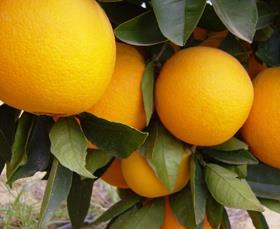
Citrus growers in the Western Cape region of South Africa say their 2015 harvest is earlier than usual following excellent growing conditions. This, along with other factors in favour of the South Africans, will enable them to be more price-competitive this year.
The early fruit has been shipped in containers and should arrive in Newark next week, followed by the loading of the first conventional vessel in Cape Town from the middle of next week. This vessel will carry the first significant volumes which should arrive at the US port of Philadelphia earlier than last year.
“The fruit dictates our season,” says Johan Mouton, chairman of the Western Cape Citrus Producers’ Forum (WCCPF). “We are very pleased with the quality and colour and we are harvesting at the optimum stage.”
Mouton says that factors such as the strength of the South African currency and the impact of lower oil pr are this year in the country's favour, and are further reason for confidence.
“We expect to ship slightly bigger volumes because we have a long term policy of growing our market share,' he explains. “We do however keep a keen interest on the discussions in the US about the renewal of the Africa Growth and Opportunities Act (AGOA). The renewal of AGOA is very important to us because the act has created new opportunities for us in the US market.”
South Africa’s position in AGOA has been in doubt because of a dispute about restrictions on the exports of frozen chicken meat from the US to South Africa. The two governments asked the two respective poultry associations to sort their differences out, but apparently this has not been successful. It is now up the US Congress to debate and vote on the matter later this year.
Speaking to citrus growers at the annual WCCPF conference in Citrusdal in the Western Cape, Teddy Taylor, the US Consul General to Cape Town, said that there were challenges to AGOA’s renewal, such as US expectations for access to South Africa markets for US products.
“AGOA’s renewal is currently before the US Congress, with a vote expected before the end of 2015.' Taylor said, while also outlining that the South African Summer Citrus export programme to the US had been one of AGOA’s great success stories.
“The citrus programme provides 8,000 permanent and 12,000 temporary jobs. It has enabled the establishment of skills transfer and improved education and healthcare and recreational facilities in the Citrusdal Valley,” he explained.
While the AGOA debate is still continuing, growers are getting on with the business of packing and shipping their fruit. The South Africans are keeping one eye on the tail-end of the Californian season and have always in the past waited, when possible, for the Californian fruit to clear before their own major arrivals land in Philadelphia.
“This year the fruit dictates to us and we have to live with that,” Mouton says.
Suhanra Conradie, CEO of the WCCPF, says the South Africans know that their future success is closely tied not only to the need for AGOA renewal but also to the collaboration of all the partners along the supply chain.
“We saw export growth of 12 per cent with volumes of around 45,000 tonnes to the US last year. The ongoing momentum is on course to expand both value and volume, and hold prominent positioning in stores and establish our unique brand identity,” she said.
South Africa carried out pilot programmes last year in order to get fruit more quickly to consumers. One of these was shipping citrus to the Port of Houston in Texas.
“There is significant growth potential for South African Summer Citrus products in the Midwest and Far west regions of the US, and the Port of Houston is a key to that growth and expansion,” said Marc Solomon, senior vice-president of Capespan North America, the largest receiver of the citrus. “The fruit can be received and quickly shipped to retail clients or bagged for their needs, resulting in significant freight savings.”
This year the first vessel to discharge South African citrus in the Port of Houston is expected in July.






No comments yet